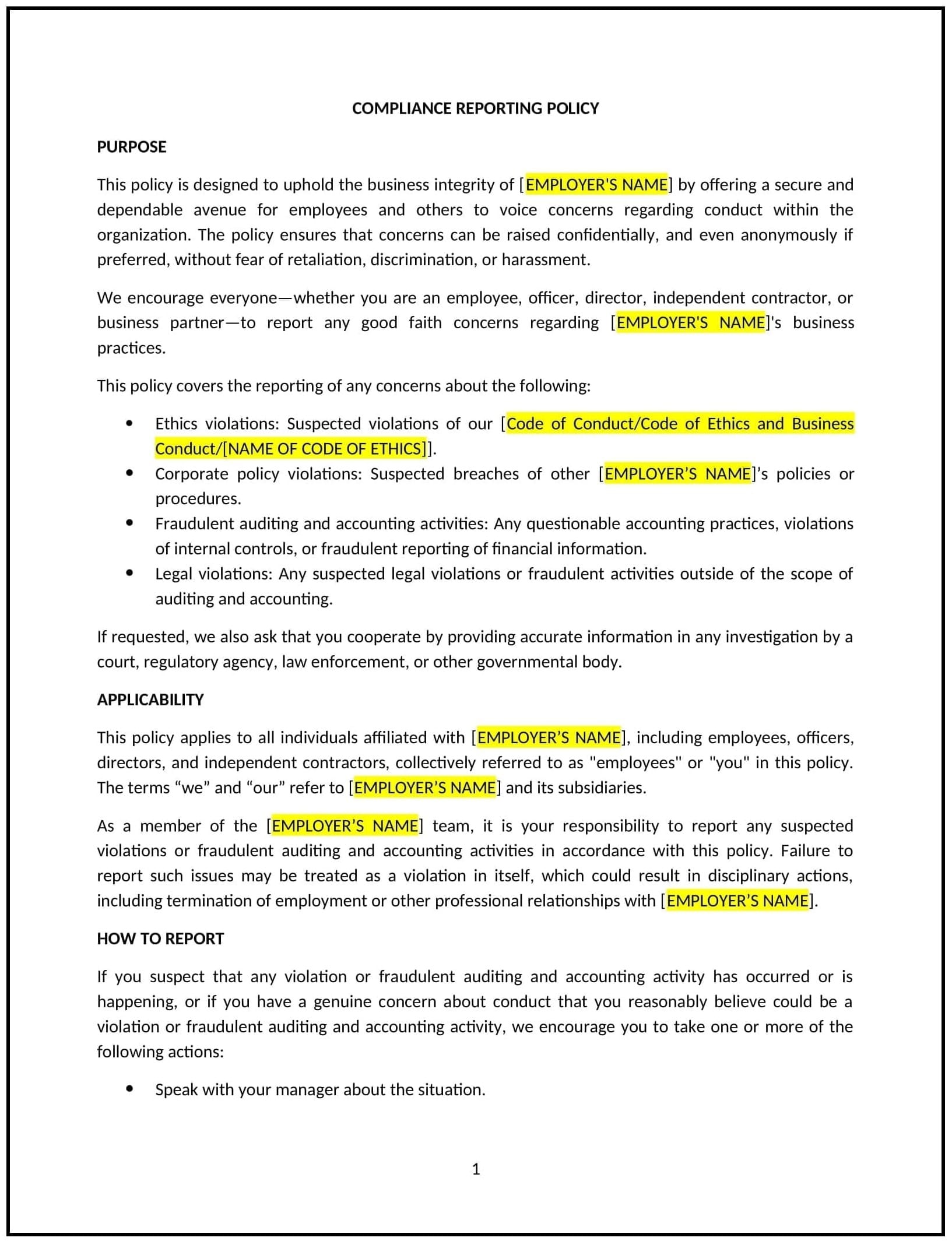Compliance reporting policy (South Dakota): Free template
Got contracts to review? While you're here for policies, let Cobrief make contract review effortless—start your free review now.

Customize this template for free
Compliance reporting policy (South Dakota)
This compliance reporting policy is designed to help South Dakota businesses establish guidelines for employees to report potential violations of laws, regulations, or company policies. It outlines procedures for reporting, investigating, and addressing concerns.
By adopting this policy, businesses can promote transparency, reduce risks, and align with general best practices for ethical conduct.
How to use this compliance reporting policy (South Dakota)
- Define reportable concerns: Explain what constitutes a reportable concern, such as fraud, harassment, or safety violations.
- Establish reporting procedures: Provide clear steps for employees to report concerns, including anonymous reporting options.
- Outline response protocols: Specify how the business will investigate and address reported concerns, including corrective actions.
- Train employees: Educate employees on recognizing and reporting potential violations.
- Implement preventive measures: Include strategies such as regular audits and open communication channels.
- Review and update: Assess the policy annually to ensure it aligns with evolving business needs and legal standards.
Benefits of using this compliance reporting policy (South Dakota)
This policy offers several advantages for South Dakota businesses:
- Promotes transparency: Encourages employees to report concerns without fear of retaliation.
- Reduces risks: Helps prevent legal, financial, and reputational risks associated with non-compliance.
- Enhances trust: Demonstrates a commitment to ethical behavior and accountability.
- Supports compliance: Aligns with general best practices for maintaining ethical standards.
- Supports reputation: Positions the business as a responsible and ethical employer in the community.
Tips for using this compliance reporting policy (South Dakota)
- Communicate the policy: Share the policy with employees and include it in the employee handbook.
- Provide training: Educate employees on recognizing and reporting potential violations.
- Monitor compliance: Regularly review reported concerns to ensure adherence to the policy.
- Address issues promptly: Take immediate action to investigate and resolve reported concerns.
- Update regularly: Assess the policy annually to ensure it aligns with evolving business needs and legal standards.